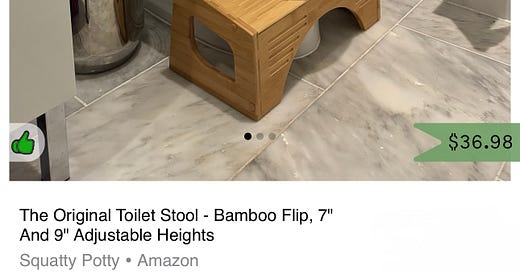Our feed has been buzzing recently with finger-pointing and tsk-tsks about the "consumerist invasion" on Substack: Personal diaries and guides disguised as shopping lists! Affiliate links playing dress-up as honest recommendations! And yes… "receipts newsletters” got some whipping too.
As the co-founders of Selleb who run the "receipts newsletter" in question, we’d like to respond to some of those comments by 1) clarifying our mission and 2) sharing our thoughts on consumerism (and the accompanying cultural shame).
It’s true. In our newsletter, What I Actually Bought, contributing writers submit receipts of the items they’ve purchased and the stories behind them — the what, where, why, when, or how — which invariably reflect something deeper about the person behind those receipts. Receipts because it’s a way to keep everyone accountable so readers are not left disambiguating between whether or not something is an honest rec or an incentivized review (or god forbid a fake one!). Stories because what you buy says a lot about you, and 10 out of 10 times, the purchase becomes a springboard for not just product insight but also human connection.
For the record, our community of contributors includes some of the finest of writers/speakers (many of whom are Substackers themselves) and masterful storytellers. So naturally, they can’t help but be imaginative, witty, sharp, and ironic when writing about even the (seemingly) most mundane things. Take, for example, a comedian buying a frying pan for his sister’s wedding and getting so much flak. Or a cultural icon forced to put exorbitant legal fees on her credit card for felony charges and when asked, “Was that your worst purchase of the year?” and she deadpans, “Well, I’m here {at a Selleb event}, aren’t I?” We’ve also had a Broadway playwright send an earnest (or was he being ironic?) nod-to-nostalgia fashion receipt and story. Just this past weekend, we had the coolest, tough-as-nails natural wine advocate and author share 5 of her underground (underpriced) faves. And in queue is one of the buzziest TikTokers who will soon share stories about her eBay vintage steals.
These moments above aren’t “just receipts” — they’re intel, entertainment, human stories, and ultimately, pieces of damn good writing. Therefore, we categorically reject the reductionist claim on Substack chatter that writing about purchases is “not art.” Art isn’t dictated by a single gatekeeper, nor does it adhere to some rigid hierarchy of worthiness.
Some critics have also accused us of being part of late-stage capitalism's final form, even enabling recidivist consumers. That’s giving us too much credit — and consumers too little. For us and the Selleb community, it’s about finding humor in the fact that your FedEx delivery guy might know you better than your therapist, and there's something deeply human about that. Receipts aren't evidence of moral failing but real-time artifacts of honest living. They constitute a paper (or digital) trail of our complicated humanity: our comforts, our aspirations, our moments of weakness and disappointments, our celebrations. They tell stories (often messy ones) that our carefully constructed public narratives often omit or sanitize.
The midnight ice cream from Milk Bar you UberEats’ed during heartbreak, the impractical jelly shoes you bought for a confidence boost before a big presentation, the weirdly niche organizational tool that TikTok convinced you would finally fix your executive dysfunction, the obscure tome nobody else seems to have read but you did and it gave you an unusual glimpse into someone with ADHD. These aren't just transactions with dollar signs but tiny windows into our interior lives.
On the contrary, Selleb isn’t about glorifying consumption but about recognizing patterns, and yes, occasionally laughing at our past selves (with others!). It's an honest chronicle not just of what we bought but of who we were becoming at each point in our journey. Receipts invite honesty, or at the very least, openness — in how we discuss our relationship with material culture. They bring into the light what has historically existed in the shadows: our own complicated relationship with the things we buy. And we believe that the path to more mindful consumption begins not with a performative rejection or vilification of the act itself but with clear-eyed acknowledgment of where we actually stand.
Therefore, we challenge the recent caricature of consumerism on Substack and push back against the pretense that some exist outside the material world, floating above the marketplace as enlightened beings who have transcended the basic human need. Spoiler alert: everyone buys things!
We readily accept documentation of virtually every other aspect of human experience — our thoughts (Substack, X), our relationships (IG), our professional development (LinkedIn), our intimate morning routines (TikTok/YouTube/etc) — while recoiling at the documentation of our material interactions as if this particular dimension of human experience must remain shrouded in selective amnesia to nurse some moral high ground.
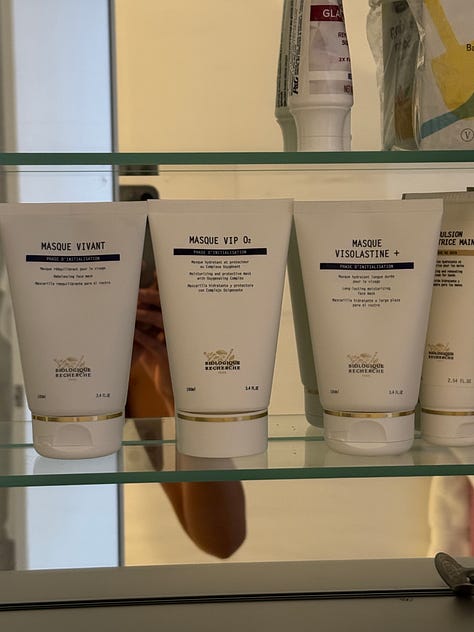

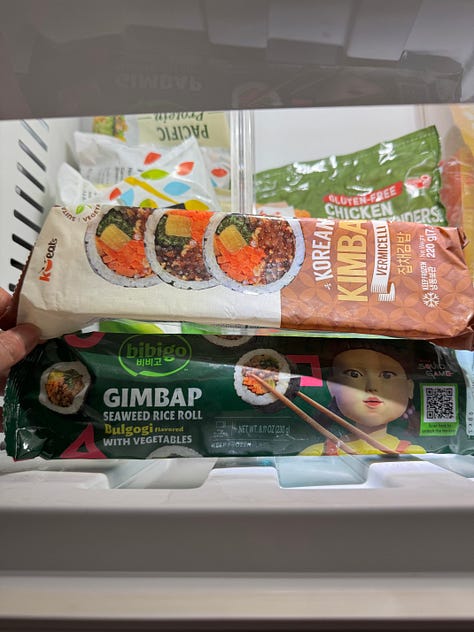
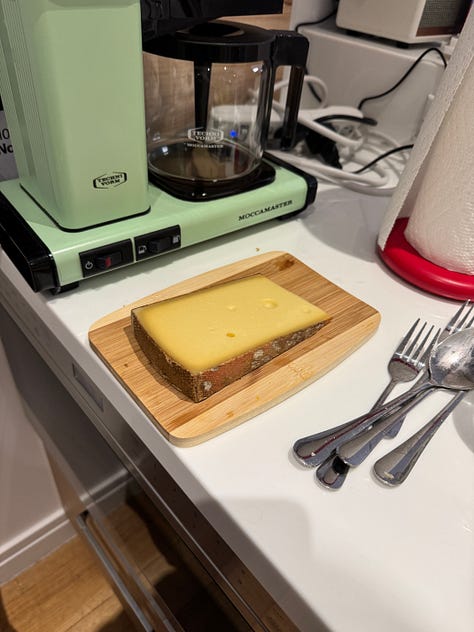
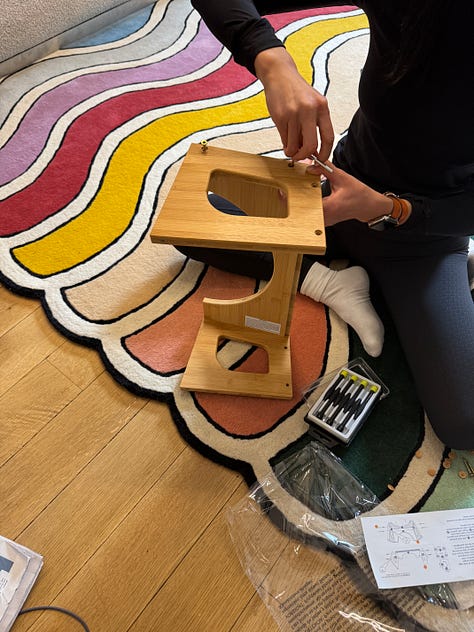
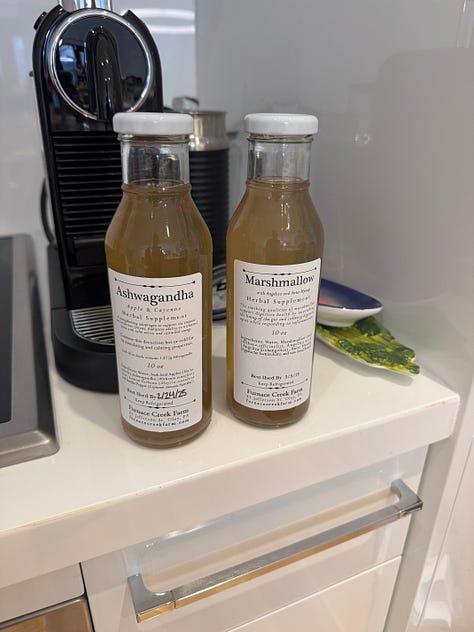
Admittedly it's become trendy — even morally superior — and intellectually convenient to pose as anti-consumerist armchair experts, to shout from the rooftops the disdain for shopping culture: Consumerism is bad! Only humanities-oriented Substacks about poetry, art, music, and books are worthy of our attention! First of all, this idea is both false and absurd. Creativity isn’t confined to a narrow set of approved topics — it thrives in the everyday, in the choices we make, and the stories we tell. Secondly, we are all consumers.
Everyone buys things: toothpaste, shampoo, gum, clothes, books, museum tickets, and sometimes even things we can’t afford…and we learn from these mistakes. The point is: everyone can join the conversation of consumption in our newsletter. After all, even the most outspoken critics of consumer culture still wear clothes, buy moisturizers, watch movies at the theater, and occupy spaces filled with chosen objects. The difference isn't whether we consume but whether we're honest about the nature and meaning of that consumption.
So to all the critics out there — we invite you to send us receipts (any!) of what you bought recently and tell us why. Write us a poetic ode or a scathing diatribe, a diary entry, a self-flagellating (or self-congratulatory) note on your beloved, reviled, or even utterly forgettable purchase that you ended up returning (we get these entries too). Whatever it is, give us your honest take, and let’s start a conversation — no judgments, no pretenses.
See you on Selleb,
Selleb Sisters


